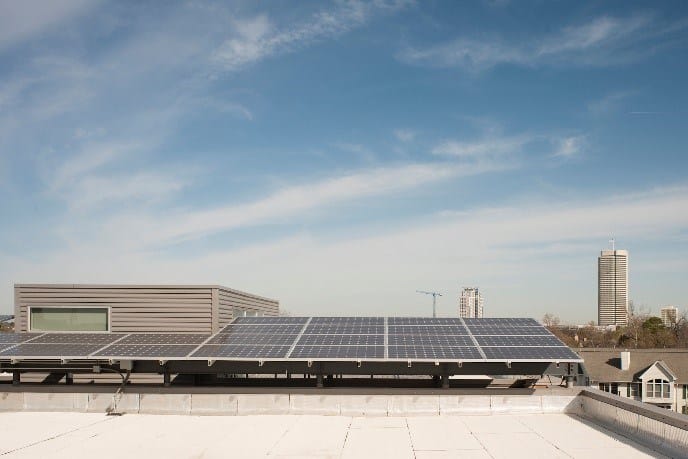
by Komoneed | Dec 18, 2024
According to the latest U.S. Energy Storage Monitor report by American Clean Power Association (ACP) and Wood Mackenzie, installations of both grid-scale and residential energy storage in the U.S. are continuing to rise, even reaching record highs in the third quarter of 2024. Grid-scale energy storage reached a record for third-quarter installations, hitting 3,806 MW […]
The post U.S. Residential Energy Storage Installations Reach a Record High appeared first on EcoWatch.

by Komoneed | Dec 18, 2024
Plastic has become essential to modern life. It’s durable and offers a level of versatility that makes it indispensable across multiple industries. However, with this type of convenience comes at least some costs. In the case of plastics, it’s the environmental impact of plastic disposal that weighs heavily on the industry. Recycling plastic is critical […]
The post The Lifecycle of Recycled Plastics: How Different Types Are Processed appeared first on RecycleNation.

by Komoneed | Dec 18, 2024
Climatelinks 2024 Year in Review: Most Popular Resources
jschoshinski
Fri, 12/13/2024 – 14:10
Climatelinks houses thousands of resources that offer technical guidance and knowledge related to USAID’s work to help countries mitigate and adapt to climate change. The most visited resources in 2024 include country-level fact sheets, trainings, guidance notes, and more.
Here are the most visited Climatelinks resources of 2024:
Guidance Note: Operationalizing the Principles for Locally Led Adaptation
Locally led adaptation (LLA) is an approach where local actors and communities lead decisions over how, when, and where to
adapt to climate change impacts. This document offers guidance for USAID and its implementing partners on operationalizing the Principles for Locally Led Adaptation. It identifies how each principle aligns with relevant USAID policies and Agency guidance and illustrates opportunities for implementing LLA across the USAID program cycle.
Regional, Sector, and Country Risk Profiles and GHG Emissions Fact Sheets
Each year, Climate Risk Profiles and Greenhouse Gas (GHG) Emissions Fact Sheets are among the top Climatelinks resources. This year, five Climate Risk Profiles got an update: Ethiopia, Libya, Uzbekistan, Jamaica, and the Philippines. Also new this year is a hub for all of the Bureau for Humanitarian Assistance’s Climate Risk Profiles for Resilience and Food Security Activities. To find GHG Emissions Fact Sheets, go to the resource section of individual country pages.
GCC Standard Indicator Handbook
The 2024 Climate Change Standard Indicator Handbook lists the FY 2024 USAID and Department of State standard indicators for climate change and development. It includes definition sheets for each indicator and references to tools that can facilitate reporting on indicators. For additional information, the Climate Change Extended Indicator Handbook includes analyses of various reporting scenarios, frequently asked questions about the standard indicators, and tips for troubleshooting.
Trainings
Climatelinks hosts a variety of trainings that help USAID staff and implementing partners build their knowledge and improve their skills. Several of these trainings were among the most visited resources this year including:
Climate Finance Training Course
Climate Risk Management Resources and Training
Climate-Resilient Development 101
Gender Equity and Social Inclusion (GESI) in Project Management Training Module
Amazon Private Sector Investment Landscape
In the Brazilian Amazon, unsustainable practices such as large-scale agriculture, cattle ranching, and logging have led to widespread deforestation and biodiversity loss. Nature-based Solutions (NbS) and bioeconomy investments are increasingly seen as powerful tools for addressing deforestation by channeling capital into businesses that protect, restore, and sustainably manage natural ecosystems. The USAID Climate Finance for Development Accelerator explored the current investment landscape in the Brazilian Amazon biome, with the aim of identifying barriers to increased investment into bioeconomy and NbS and potential opportunities to help unlock additional flows.
Do you have a resource you think belongs on Climatelinks? We would love to hear from you! Submit your resource to the Climatelinks team or email us to discuss next steps.
Teaser Text
The most visited resources in 2024 include country-level fact sheets, trainings, guidance notes, and more.
Publish Date
Thu, 12/12/2024 – 12:00
Author(s)
Jamie Schoshinski
Hero Image
EV Charger Assembling.jpg
Blog Type
Blog Post
Strategic Objective
Adaptation
Integration
Mitigation
Region
Global
Topic
Adaptation
Biodiversity Conservation
Emissions
Climate Finance
Climate Risk Management
Climate Strategy
Forest/Forestry
Gender and Social Inclusion
Indigenous Peoples and Local Communities
Locally-Led Development
Mitigation
Monitoring, Evaluation, and Learning
Nature-based Solutions
Resilience
Training
Sectors
Climate
Show Download Link
On

by Komoneed | Dec 18, 2024
This post was originally published on The Art NewspaperThe meaning of the image has been a subject of debate among the artist’s...

by Komoneed | Dec 18, 2024
This post was originally published on The Spin OffCirculose adds Sara Diez Jauregui and Kalyan Madabhushi to its...






